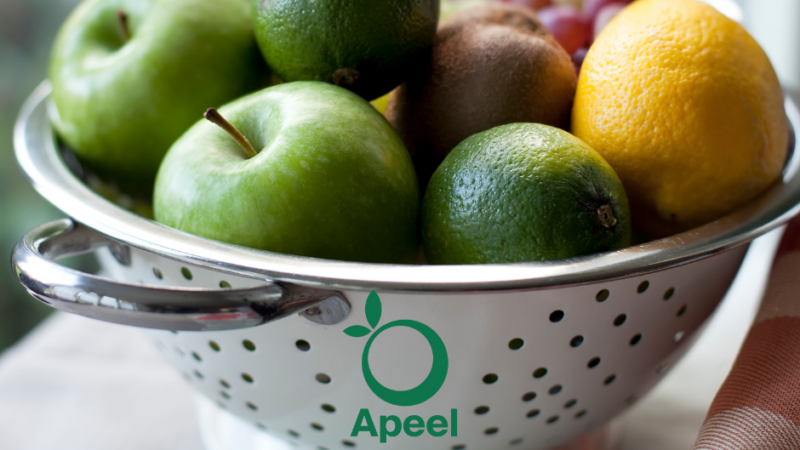The Nutrient Rich Onion
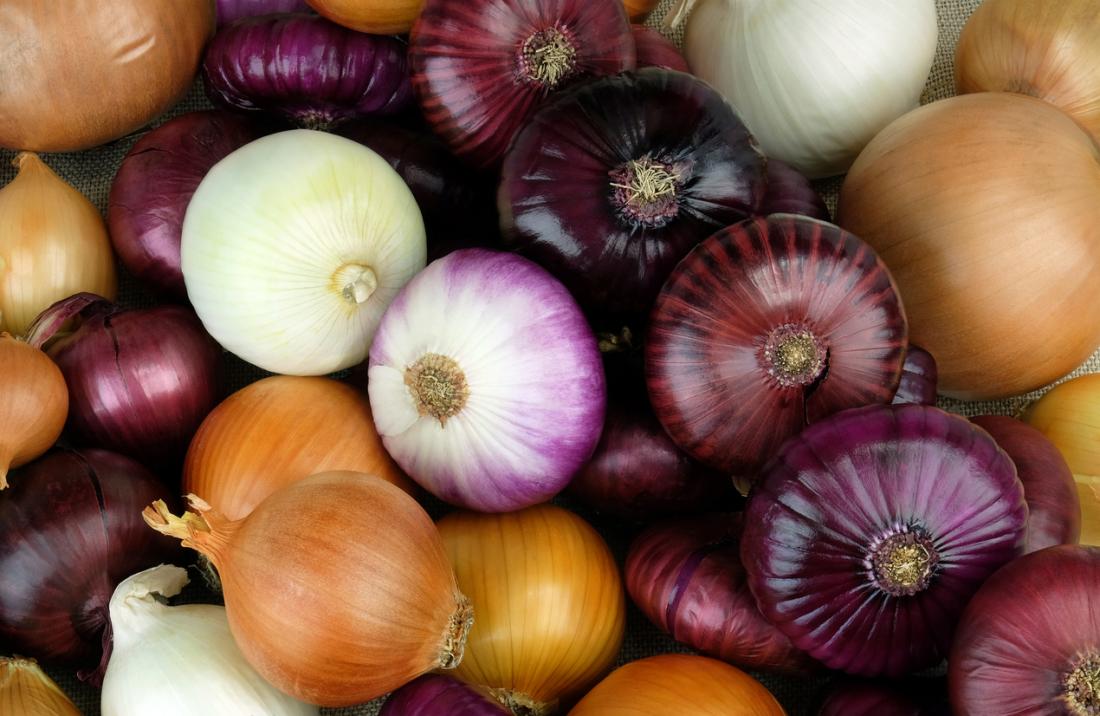
Onions are rich in conventional nutrients as well as unique phytonutrients. An onion contains vitamins A, B6, C, Folate and the minerals Calcium, Chromium, Copper, Iron, Magnesium, Manganese, Phosphorus, Potassium, Selenium, Sodium, and Zinc. Medicinally, Onion is an analgesic, anti-inflammatory, antiseptic, antispasmodic, carminative, diaphoretic, diuretic, expectorant, stimulant, and vulnerary. Onion is excellent for treating coughs, colds, the flu and some say even cancer. Its known to help with sleep and improve health of hair. In fact, its antibacterial properties are said to help reduce cavities and gingivitis. Quite the list of accomplishments!
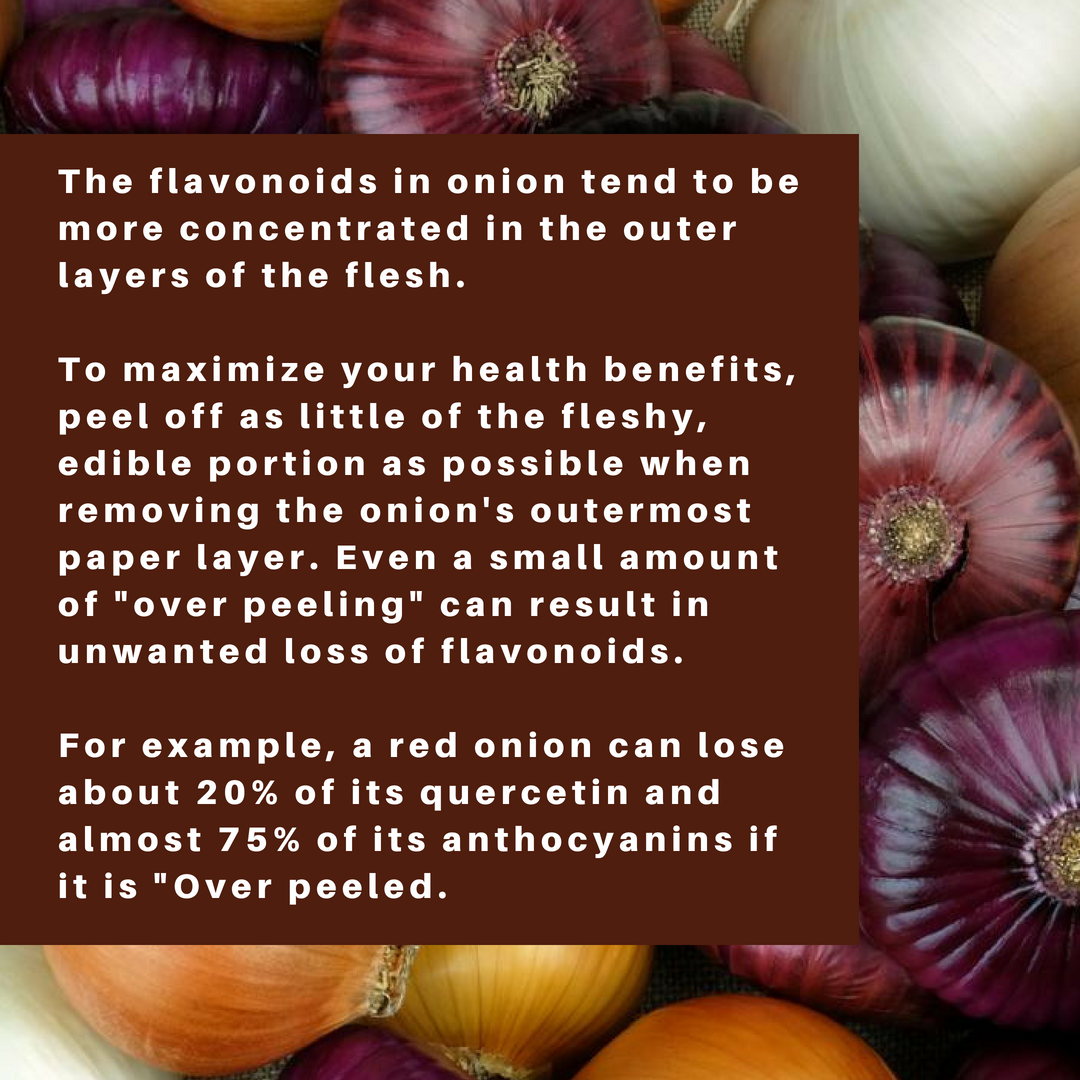
Antioxidant and Anti-Inflammatory Benefits of Onions
Onions are a good source of vitamin C and the mineral manganese, two “conventional” nutrients that play a key role in our body’s antioxidant support. Vitamin C, offers protection of genetic materials like RNA and DNA and many of the cell structures.
Learn More About the Health Benefits of Vitamin C
Additionally, vitamin C helps Phase 1 (“mixed function oxidase”) enzymes in our body’s detoxification system function properly because it helps keep metal cofactors for those enzymes in place.
Manganese, is another critical antioxidant benefits supporting proper functioning of the enzyme superoxide dismutase (SOD) in a form that requires manganese (abbreviated MnSOD). MnSOD is one of the key enzymes in our mitochondria, cell components that are critical for oxygen-based energy production. Good antioxidant protection in our mitochondria is quite essential since these cell components are so vigorously engaged in oxygen metabolism and can trigger problems unless functioning safely.
Most recognize the unique antioxidant, and anti-inflammatory properties come from the phytonutrients provided by onions. Perhaps most famous are the quercetin flavonoids (and quercetin glycosides) that are so plentiful in onions (and especially red onions). Also well studied here are the anthocyanin flavonoids that give red onions their incredible color. Studies also show that yellow and white onions can also be concentrated sources of antioxidant and anti-inflammatory phytonutrients. Virtually all of these nutrients have been shown to have antioxidant and anti-inflammatory properties and to be contained in most varieties of onions, including yellow and white varieties. (With the anthocyanin flavonoids, it is a different story, since these flavonoids are only concentrated in red or purple onion varieties.)
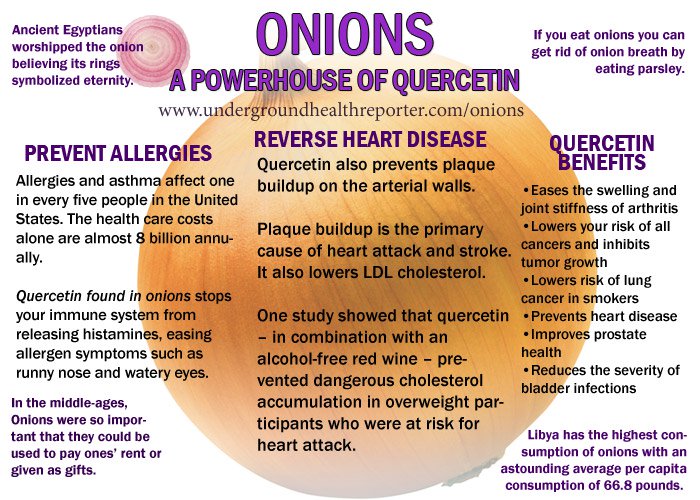
Great for your Teeth and Gums
Onion has been shown to help prevent bacterial infection. Along with its sulfur-containing compounds, the flavonoid quercetin contained in onion helps provide these antibacterial benefits. Studies showing antibacterial activity of onion in relationship to the bacteria Streptococcus mutans and Streptococcus sobrinus. (These bacteria are commonly involved in the production of tooth cavities). Antibacterial benefits have also been shown in the area of gum (periodontal) disease bacteria, including Porphyromonas gingivalis and Prevotella intermedia.
Cancer
Allium vegetables have been studied extensively in relation to cancer, especially stomach and colorectal cancers. Their beneficial and preventive effects are likely due in part to their rich organosulfur compounds.
The exact mechanism by which these compounds inhibit cancer is unknown, but hypotheses include the inhibition of tumor growth and mutagenesis, and prevention of free radical formation. Onions are also a source of the strong antioxidant vitamin C that helps to combat the formation of free radicals known to cause cancer.
Sleep and mood
Folate, found in onions, might help reduce depression. Homocysteine prevents blood and other nutrients from reaching the brain, and folate prevents this chemical from building up. Excess homocysteine also interferes with the production of the feel-good hormones serotonin, dopamine, and norepinephrine, which regulate not only mood, but also sleep and appetite.
Skin and hair
Onions are high in vitamin C, which is needed for the building and maintenance of collagen, which provides structure to skin and hair.
Flu Remedy Onion in your sock?
Science hasn’t studied the remedy of an onion in the sock to help reduce the length of flu. Have YOU attempted this cure dating back to the 1500’s? What was the result?
Could Length of Cutting/Storage of Onion Could Decrease Health Benefits?
Interestingly, in one study, fresh, chopped, uncooked onion had antibacterial effects on these potentially unwanted gum bacteria, but non-fresh, uncooked onion (raw onion that was chopped and then left to sit for 2 days at room temperature) did not demonstrate these same antibacterial properties nor did fresh onion that was grated and then steamed for 10 minutes. While it is not possible to draw broad conclusions from a single lab study, these findings suggest that length of storage (for onion that has been chopped but not cooked) and duration of heat exposure (in this case involving exposure to steam for 10 full minutes) can affect some of onion’s health benefits.
For these reasons, special care may be needed in the storage, handling, and cooking of this allium vegetable.
Recipes
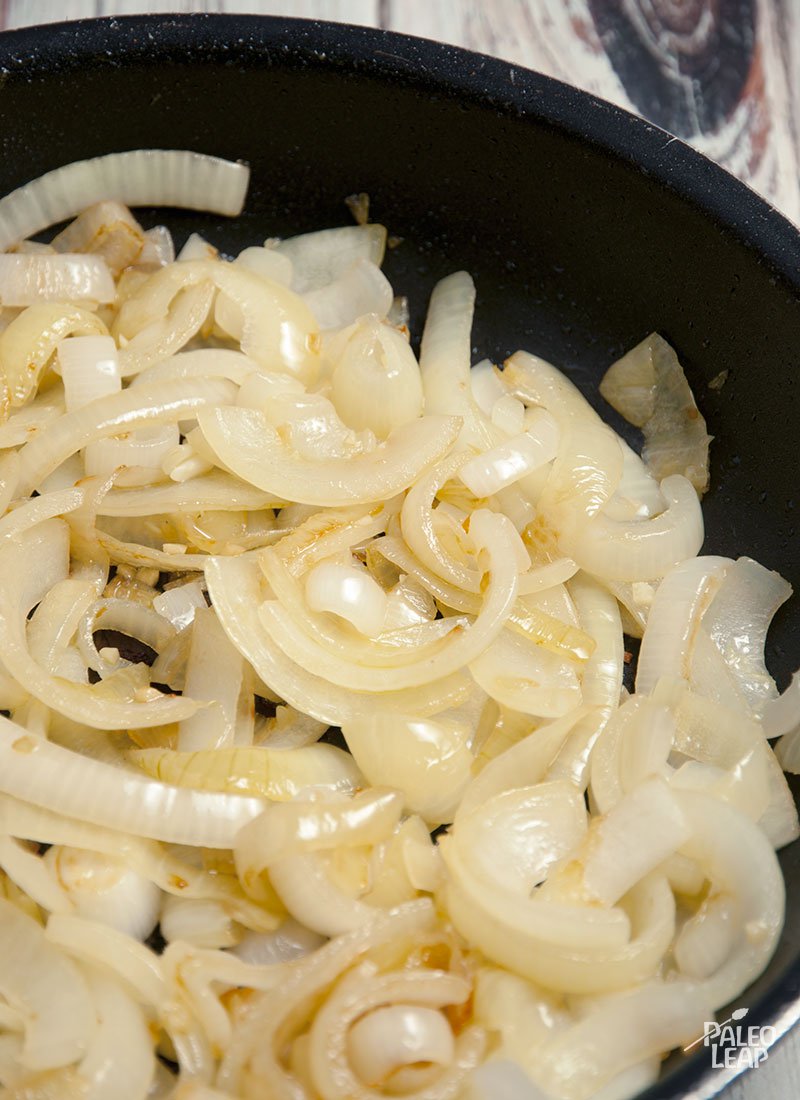
Healthy Sauté – similar to Quick Boiling and Quick Steaming, – follows three basic cooking guidelines that are generally associated in food science research with improved nutrient retention. These three guidelines are:
(1) minimal necessary heat exposure;
(2) minimal necessary cooking duration;
(3) minimal necessary food surface contact with cooking liquid.
Heat 2 TBS vegetable or chicken broth over medium heat in a stainless steel skillet.
When broth begins to steam, add onions and cover for 3 minutes.
The onions will release a small amount of liquid.
Uncover, add another 2 TBS broth, and continue to stir for 4 minutes, leaving the lid off.
Toss with our Mediterranean Dressing and top with your favorite optional ingredients. 7-Minute Healthy Sautéed Onions.

- Sofrito sauce—typically associated with Spanish cuisine but actually used in a variety of cuisines worldwide—has been the topic of a recentstudy that provides some fascinating new information about onions. The four sauce ingredients : extra virgin olive oil, garlic, onions, and tomatoes. In this study, several methods for preparation of the sofrito sauce were investigated, but one of the consistent study findings was the ability of onion to help increase the bioavailability of lycopene (a well-studied, health-promoting carotenoid) from the tomatoes. The authors speculated that the sulfur-compounds in the onions may have been involved in a chemical reaction (electron transfer) that helped increase the availability of the lycopene.

